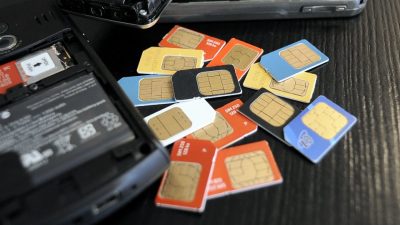Subscribers to lose SIM after a year as NCC tasks operators on QoS
It said a subscriber’s line may be deactivated, if it has not been used within six months for a Revenue Generating Event (RGE). And if the situation persists for another six months, the subscriber may lose the number, except where a network-related fault inhibits RGE.
RGE is any action by one or more subscribers that leads to revenue being derived directly or indirectly by one or more operators. Examples include sending or receiving calls/SMS/MMS/ data download/line rental payment.
The disclosure was based on a new document released by the commission, titled ‘Draft Quality of Service (QoS) Business Rules’ dated June 2023.
In the 33-page document, NCC said: “Monies left in account on deactivation can be claimed by subscribers, once proof of ownership can be established at any given time within one year (less any fee paid by the operator for the number within the one-year of non-RGE).”
It further noted that a subscriber with proof of good reason for absence is at liberty to request line parking.
Checks by The Guardian showed there are 316.6 million connected GSM lines, of which 223 million are active. Invariably, it means some 94 million lines have become inactive since the telecoms revolution started over two decades. It must be stated also that some telephone lines may have been reallocated to other people after being inactive for some period of time.
Furthermore, NCC charged telecoms operators to ensure they meet Key Performance Indicators (KPIs) set for them by ensuring telephony services are at optimum level in the country.
To ensure compliance with QoS Regulations, 2023 and for proper monitoring on a state-by-state basis, the commission categorised various states into three priority groups.
The first 10 states (Priority 1) are: Lagos, Ogun, Abuja, Oyo, Kano, Kaduna, Rivers, Delta, Anambra and Edo.
The second set of states (Priority 2) is: Imo, Niger, Osun, Abia, Enugu, Ondo, Akwa-Ibom, Benue, Plateau, Adamawa, Katsina, Kwara, Kogi, Nasarawa and Bauchi.
The third set of states (Priority 3) is: Borno, Taraba, Cross-River, Sokoto, Kebbi, Gombe, Ekiti, Yobe, Ebonyi, Zamfara, Jigawa and Bayelsa.
On tasks before MTN, Globacom, Airtel and 9mobile, NCC said the operators shall submit their QoS report on a state-by-state basis (Reporting Areas) to enable the commission to review its threshold.
According to NCC, operators shall meet KPI targets in all Priority 1 states, resolve QoS issues and meet specified KPI targets within 28 days of notification by the commission.
It explained that telcos shall meet KPI targets in, at least, 10 of the 15 Priority 2 states, resolve QoS issues and meet KPI targets within 56 days upon notification by the commission.
NCC added: “Failure to meet specified KPI targets in Priority 1 or Priority 2 states for the last 90 days, prior to the KPI assessment, will result in denial of any application for any promotion to be run on the network of the operator until the KPI targets are met.” (Guardian)


